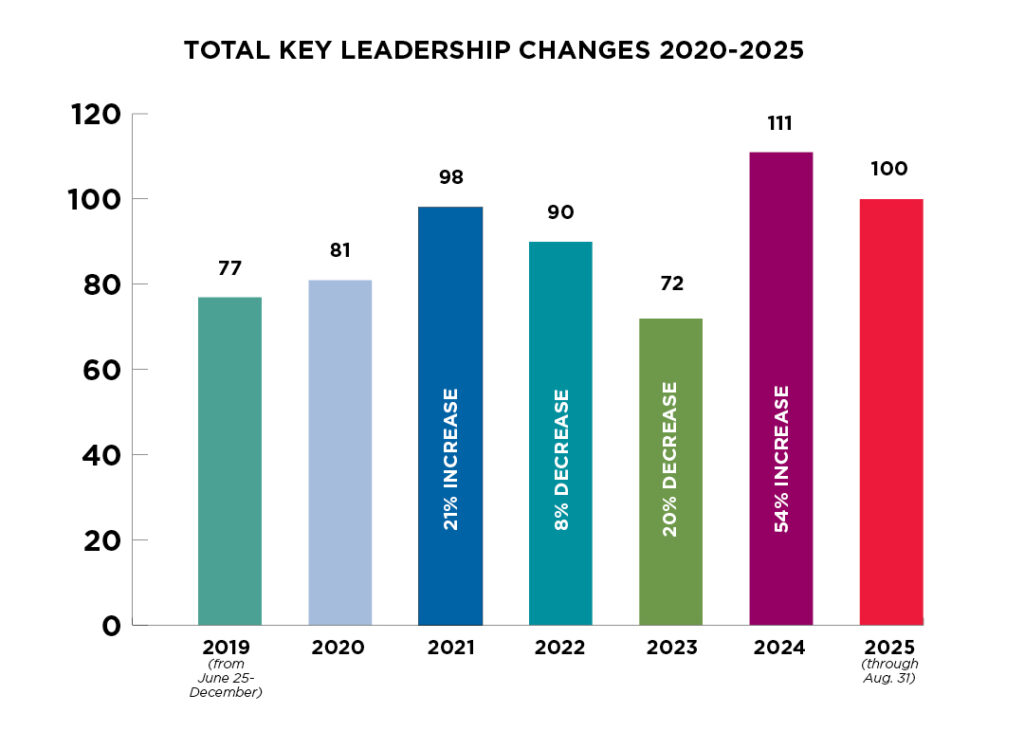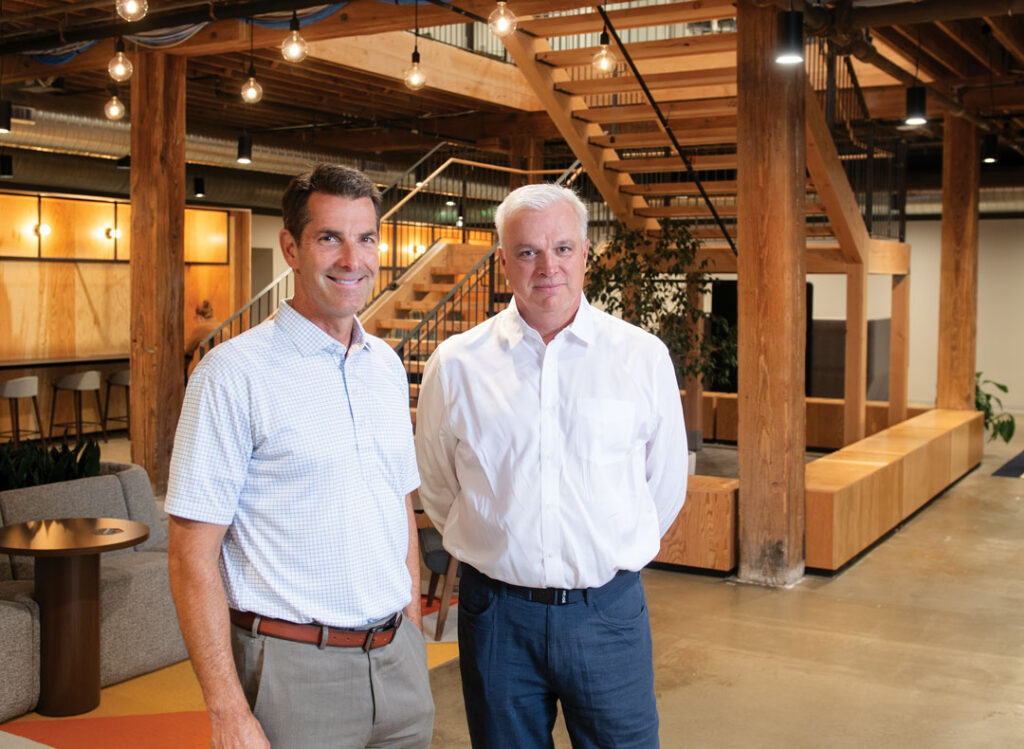Power Breakfast: Why we’re discussing #MeToo

SUZANNE BEHNKE Sep 5, 2018 | 2:53 pm
7 min read time
1,580 wordsBusiness Record Insider, Power Breakfast SeriesThe past year has been filled with the fallout and consequences from news of sexual harassment in the workplace. The #MeToo movement has increased the attention and sensitivity to harassment in the workplace and provided another opportunity for more transparency and discussion.
Recently, John Oliver on his weekly HBO show tackled the topic of #MeToo. The episode was a fantastic look at the topic of workplace sexual harassment and featured an interview with Anita Hill. Hill, you’ll remember, came forward in 1991 to accuse U.S. Supreme Court nominee Clarence Thomas of sexual harassment. She testified before the Senate Judiciary Committee for eight grueling hours. Thomas was ultimately confirmed for the court where he now sits.
In the episode, Oliver made the somewhat obvious statement that workplace sexual harassment is not new. He lamented the fact that although we’ve had swells in awareness in the past, it often fades to the background, only to resurface again in the future.
In addition, Oliver also shared candidly about not speaking out when he had seen workplace harassment in the past due to power dynamics that made him too afraid to do so. Hill gave him and the audience advice on how to best address the situation in the future.
Our Power Breakfast focusing on #MeToo in the workplace is our effort to help ensure this important topic doesn’t fade, and our effort to make sure both men and women have the tools and best practices to confront this. We’d love to have you join us for the discussion.
At the end of his interview, Oliver asked Hill how she was feeling about the movement now. She responded: “I am feeling more optimistic than I was 27 years ago. If we do nothing, then change is not going to come.
– Chris Conetzkey, publisher, Business Record
THE QUESTION: In what ways are Iowa employers failing to deal with or address sexual harassment or other harassment in the workplace?
Kirsten Anderson
founder, Equitas Solutions
Many employers fail to audit, investigate or review internal practices and behaviors and are instead taking a reactive approach by implementing the bare minimum of compliant measures.
To wait and react to a situation is already too late because the organizational damage is done and will take years to repair, both monetarily and reputationally. Organizations must take a proactive approach to addressing the issue.
To truly deal with the issue of sexual harassment, other harassments and bullying in the workplace is to begin to think differently and talk openly about it from the organization top down.
It means asking pointed and poignant questions that will potentially make people uncomfortable in the short term and confident in the long term. Employers want a productive workforce that contributes to the company’s bottom line, but if they have an insidious problem occurring, such as harassment, it inhibits productivity, negatively affecting the bottom line. It cannot merely be a one-time change or adaptation in management thinking. It has to be continuous, ongoing conversations with both management and staff understanding what is occurring and a willingness to discuss among themselves and management.
Employees want to be reassured they are valued and supported, which contributes to a safe and productive environment. They will talk more openly about the problem, stand up for themselves and others if they know they will be believed, taken seriously, and management is willing to listen and act.
While the term “zero tolerance policy” is great in theory, it is simply wordplay until it is seen and felt within an organization. Organizations must be explicit in addressing the issue, writing, updating and implementing policies and training because there is no room for error and reactive behavior. The cost is too great. We all must change our mindset before we can change our actions and improve workplace culture.
Jon Couture
Principal Financial Group
When it comes to providing an environment free from harassment and discrimination, that has been the culture at Principal for years. We take complaints seriously, and we address them quickly. But if that was the end of the story — if we were simply providing an environment where our employees feel safe — we wouldn’t be doing nearly enough.
In the #MeToo era, safety and security are table stakes. Principal’s deeper strength is in fostering a culture that values diversity, inclusion and equality — not just for women, but for everyone within the organization. There are several ways in which we promote this. First, we champion our philosophy that workplace diversity leads to innovation and exceptional customer service. Second, we cultivate a working environment that is tailored to each employee’s individual needs, through benefits like flexible work schedules, prenatal programs and an on-site child care center. Third, we provide opportunities for open and honest dialogue around diversity issues. For example, we host a series of “Connected Communities Conversations” at which employees can learn, empathize and connect in a safe environment. And fourth, we provide confidential and anonymous resources for employees to report issues that create an unsafe or unwelcoming work environment.
A core commitment to diversity and inclusion has paid dividends for Principal. We’re an extremely gender-balanced organization — 60 percent of our senior executives and 45 percent of board members are women. That’s well above average for the industry and among S&P 500 companies. You don’t achieve that level of balance without an atmosphere that supports and nurtures all employees. And Forbes recently placed Principal at No. 1 on its first-ever list of America’s Best Employers for Women, which is a powerful reflection of our efforts.
We’re not perfect, and there’s always more that we can do to ensure that our employees bring their best selves to work. That will always be true. The starting point of the conversation must be cultivating an environment free from harassment and discrimination — and we keep building from there.
Karin A. Johnson
partner, Faegre Baker Daniels law firm
Most businesses employ good people who genuinely want to do the right thing. And, in my experience counseling employers and representing them in litigation, Iowa businesses are doing many things right when it comes to preventing and addressing sexual harassment. They understand the importance of comprehensive policies and training, well-published reporting avenues, effective documentation and non-retaliation.
Here are two additional actions Iowa employers should consider: (1) Focus policies and training on a workplace environment of respect, rather than legally actionable harassment; and (2) conduct prompt and thorough fact-finding investigations.
Sexual harassment has been around since women entered the workforce and has been recognized nationally as unlawful since 1980. However, today — with movements such as #MeToo spotlighting a vast array of reportedly disrespectful (and sometimes disgusting) conduct, it can be difficult for employers to identify the threshold of conduct that warrants action.
Courts only recognize as legally actionable conduct motivated by sex that is severe or pervasive in nature. In addition, to be legally prohibited the conduct must be subjectively and objectively offensive, meaning a reasonable person would have found the conduct offensive.
But who is this hypothetical reasonable person? Every person thinks she is reasonable, and every person has a different tolerance for unwelcome conduct. Employers are well-served, then, to more broadly focus their policies and training on inappropriate conduct, whether it rises to the level of harassment or not. Respectful workplace policies counsel employees to err on the side of caution and raise the bar in terms of workplace culture.
When inappropriate conduct is reported, employers should use an unbiased investigator to conduct a meaningful fact-finding. The investigation should be prompt and exhaustive — a common “miss” is failing to interview the alleged bad actor because “I know Joe, and he is not the sort of guy who would do anything like that.” It also is important to demonstrate respect and active listening in the investigation process.
Ultimately, the fact-finder must exercise sound judgment in drawing conclusions, which means she must make credibility determinations. In so-called “he said/she said” disputes, employers can and should make a judgment call as to who is telling the truth, and take appropriate action accordingly.
Tiffany O’Donnell
chief executive, Iowa Women Lead Change
If the #MeToo campaign makes one thing clear, we’re not alone.
Some say the workplace is a grown-up “playground” of sorts. We get really good and laugh at offensive jokes, hopping up from our desk just before a neck massage (though I wasn’t quite quick enough when one asked me to scratch his back at a business dinner) and, in general, trying to avoid inappropriateness.
Yes, there is the human resources department. Theoretically, they are a company’s answer to protecting employees. However, in many organizations, what we watch happen in reality keeps us from going there. Here’s why:
• We know who they are really responsible for protecting. (Hint: Not us.)
• Until we’re ready to quit, we won’t risk reporting it for fear of retaliation.
• We don’t want to be “that girl.” You know, the one with “HR issues.”
I am not disputing the overall importance of human resources professionals. Truly, they are most often the drivers of the employee education that works to eliminate sexual harassment and many other toxic workplace issues. They play a critical role in ensuring safe, productive workplace environments. That being said, though, they are often constrained by corporate structures and legal obstacles including arbitration clauses that often mean the people they report remain in the company. Their offenses are kept secret. The cycle repeats.









